Table of Contents
Scientific Management Theory of Organization:
The organization is the most significant and integral part of the administration. Without proper organization, no administration can be possible. The administration is an organized activity. It comes into being and gets operationalized only through an organization. In today’s world, one’s life is inextricably interwoven with the organization whether it be a governmental organization or of the church, army, school, public or private. An organization is a framework or a structure by which administration gets operationalized. It facilitates proper utilization of men, materials and money for the achievement of goals. It is a social unit with a specific purpose. Each organization comes into existence with a purpose specific to its genesis.
In each social system, there are at work a large number of organizations such as governments, business organizations, hospitals, schools, churches, clubs, associations, and other such organizations. Each has its own purpose. An organization comes into existence for satisfying a purpose and remains at work for securing this purpose. Organizations are arrangements designed to work systematically for securing the objectives for which they are constituted.
With the advancement of science and technology in the 20th century, the field of public administration also became more and more complex. Consequently, the study of Public Administration also experienced a big complexity. Several approaches came to be developed by different social scientists for the study of administration/organization.
Attempts at the systematic study and analysis of organization can be traced back to the later part of the 19th and the early part of the 20th century. Scholars like Taylor, Henry Fayol, Max Weber, Mooney, Ruby, Gulick and Urwick were the forerunners who attempted to conduct a scientific study of an organization. Taylor formulated the “Principles of Scientific Management” for improving productivity and efficiency in an organization. Henry Fayol, a French Manager and industrialist, expressed his ideas in 1916 in his book “General and Industrial Management”. Max Weber focused on the concept of Bureaucracy. “Luther Gulick and Lyndell Urwick” and others contributed extensively towards the formulation of the general principles of administration and organization.
The main theories which seek to study organization are the Scientific Management Theory of Taylor and his associates, the Bureaucratic Theory of Weber, the Classical Theory of Henry Fayol, Luther Gulick and others, the Human Relation Theory of Elton Mayo, the Behavioural Approach and System Approaches.
Scientific Management Theory- Frederick Winslow Taylor is generally regarded as the father of the theory of scientific management. Taylor undertook research in the management of industry in the USA. He believed that the principle, “best management is a true science” is applicable to all kinds of human activities. He attempted to bring the precision of science to the analysis and measurement of administrative work. During the later part of the 19th century, the new industrialist climate in America gave rise to the emergence of a new class- the managerial class. Now, management studies came to be concerned with the development of a more all-inclusive, comprehensive, long term approach to encounter multiple managerial problems. The scientific management stressed rationality, predictability, specialization and technical competence. Taylor’s contribution to the development of scientific management was recorded in his following papers-
- A Piece-Rate System (1895).
- Shop Management (1903).
- The Art of Cutting Metals (1906).
- The Principles of Scientific Management (1911).
Taylor philosophy of management was based on four basic principles of scientific management:
- The development of a true science.
- The scientific selection of workmen.
- The scientific education and development of workmen.
- Intimate and friendly co-operation between management and men.
Development of a True Science of Work:
Taylor pointed out that management is a true science resting on fixed laws, rules and principles. The main object of management is to secure the maximum prosperity for the employer, coupled with the maximum prosperity for each employee.
The philosophy of scientific management is that there is no inherent conflict in the interests and intentions of employers, workers and consumers. The primary concern of Taylor was that the results of higher productivity should equally benefit all people- workers, employers and consumers, in the shape of higher wages to the workers, greater profits to the management and lower price for the products to the consumers. Thus, the science of work enables an organization to produce more, enables the worker to receive higher wages, and makes it possible for the organization to register much larger profits.
Scientific Selection and Progressive Development of the Workmen:
Taylor strongly advocates the need to select only those workers who have the necessary physical and intellectual qualities for the effective performance of the work. However, along with this, he believed that every worker has potentialities for development. He insisted that every worker must be systematically and thoroughly trained. Taylor felt that it is the responsibility of the management to develop the worker offering him opportunities for advancement to do the job to the fullest realization of his natural capacities. It is necessary to ensure that the employers should accept their views, methods, tools and conditions willingly.
Bringing together the Science of Work and Scientifically Selected and Trained Men:
Taylor felt that it is the responsibility of the management to inspire the workers. Inspiration enables the worker to do his work efficiently. He believed that workers are always willing to co-operate with the management but there is opposition from the side of the management. Taylor maintained that this process of bringing together the management and the workers need a psychological change- a mental revolution. The concept of scientific management primarily involves a complete mental revolution on the part of workers and management regarding their duties towards their work, towards their fellow workers and towards all of their daily problems. According to Taylor, “In every organization, a conflict exists between workers and management due to improper division of output. To avoid this conflict, it is essential to change the mental attitudes of both sides”. For this purpose, Taylor propagated the concept of mental revolution. In order to secure the success of the mental revolution process, it was essential to select workers in a scientific way as scientific selection and training can go a long way in securing a conflict-free environment in an organization. It was an essential step for developing the sense and spirit of work among the workers.
Division of Work and Responsibility:
In the traditional management theory, the workers bore the entire responsibility for work while the management had a lesser responsibility. Taylor’s concept of scientific management advocated equal responsibility of the management and workers. For this purpose, Taylor wanted a due division of labour and sharing of responsibility between the management and workers. Division of work creates understanding and mutual dependence between them. Thus, Taylor’s scientific management theory revolves around four important principles each of which stands for a particular dimension of an organization.
We can summarize the above four principles of scientific management as under-
- Science, not rule of thumb.
- Harmony, not discord.
- Co-operation or co-operative endeavour and action, not individualism.
- Maximum output in place of restricted output.
- Development of effciency and prosperity.
Critical Evaluation of Scientific Management Theory:
Most of the criticism against Taylor’s scientific management comes from the Marxists. It is argued by them that the techniques used by scientific management are in fact tools of additional exploitation of labour by the capitalists. Other critics of Taylor’s concept include Trade Unions and Organized Labour, Managers, Human Relations Theorists and Behaviouralists.
The labour leaders and trade unionists say, “Taylor concept of Scientific Management is not only destructive of trade unionism but also a destroyer of the principle of collective bargaining”. Most of them argue that Taylor was more interested in the mechanical aspects of work and less with the total work situation of an organization.
According to B. Venkateshwarlu, “Taylor’s axiom was that for every operation, a worker has to carry out the one best way. The workers have to do their work in accordance with the best norms thereby economising the motion, time and money of the enterprise. In order to encourage him to conform to the norms and to foster emulation, the worker is offered a system of bouses. “Scientific Management seeks to establish the conditioned reflex most profitable for the enterprise to produce a human production automation, physically conditioned and stimulated by a psychological spray of prestige and material spring of the bonus. And this brought the enterprise huge profits not only by scientifically exploiting the labourers or their labour but also an attendant process of the capitalist division of labour resulting in de-skilling that conditioned the physical and mental faculties of human beings for the sole purpose of profit-making”.
Prof. Robert Hoxie, who conducted an investigation for the United States Commission on Industrial Relations, criticized Taylor’s Scientific Management as it was concerned only with mechanical aspects and ignored the human aspects of production.
Taylor’s approach to scientific management was also criticized by managers. The managers did not appreciate his scornful comments on the rule of the thumb method.
Among others who criticized Taylor were the British Management Thinker, Oliver Skeldon and American Business Philosopher, Mery Parker Pollett. They charged that Taylor’s Scientific Management was impersonal and it under-emphasized the human factor.
Elton Mayo, the human relation theorist, was also critical of Taylor’s theory of Scientific management. According to him, “It is not the structural arrangements which are important for increasing productivity and efficiency in the organizations but it is the emotional attitude of the worker towards his work and his colleagues”.
Behaviouralists criticized Taylor’s scientific management on the ground that it ignores the initiative of the worker, his individual freedom and the use of his intelligence and responsibility.
Conclusion:
Despite these points of criticism against Taylor’s theory of scientific management, his work remains important. He must be regarded as a pioneer in the study of human beings at work. He was the first person to initiate the quest for better performance at work. He was also the first to apply quantitative techniques to the study of industrial management. In course of time, Taylor’s scientific management approach became something like a movement. It had a tremendous impact on the industrial practices of Germany, England, France, Japan, (erstwhile) U.S.S.R, and other European countries. Scientific Management was also supported in the (erstwhile) U.S.S.R and Taylor’s principles were included in the curriculum of the education and training of engineers.
Lenin advocated its use. He observed, “We must introduce the Taylor system and scientific efficiency of labour throughout Rusia by combining the system with a reduction in working time, with the application of the new methods of production and work organization undeterimental to the labour-power in the working population”.
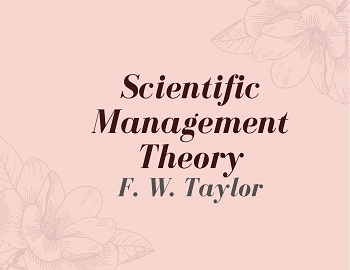
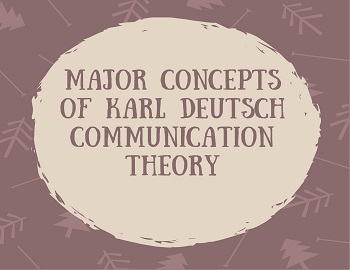
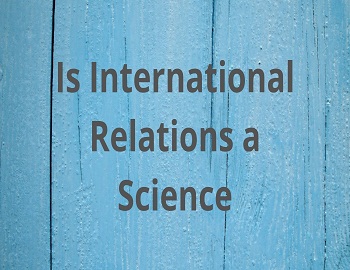
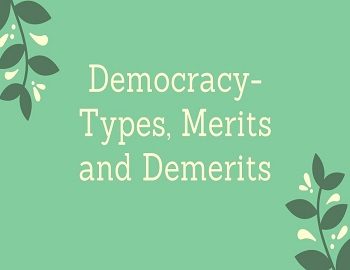
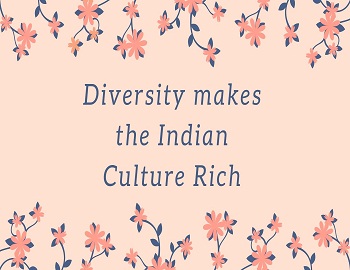
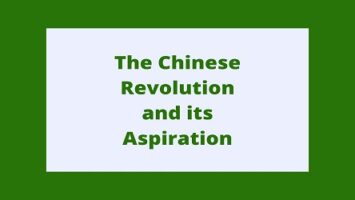

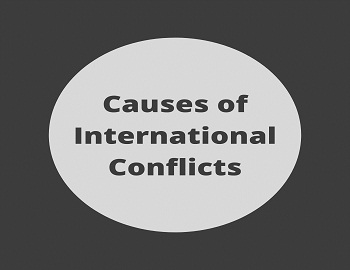

Comments (No)